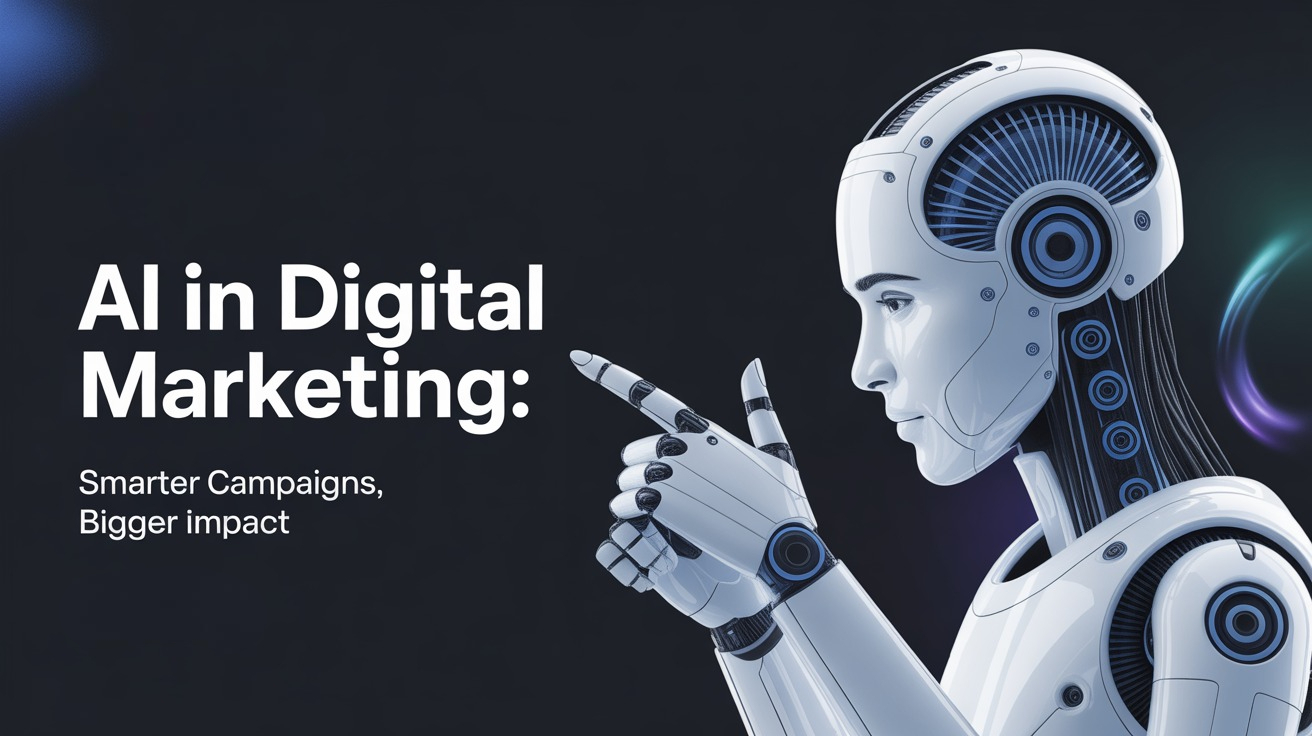Introduction
In 2025, artificial intelligence (AI) is no longer a futuristic concept—it's a core driver of modern digital marketing. From content creation to predictive analytics, AI tools are enhancing how marketers connect with audiences, optimize campaigns, and boost ROI. This blog explores how AI is revolutionizing digital marketing and how B2B brands can harness its full potential.
What Is AI in Digital Marketing?
AI in digital marketing refers to the use of machine learning, natural language processing (NLP), computer vision, and data analytics to automate, enhance, and personalize marketing efforts. It enables marketers to:
- Analyze customer behavior patterns
- Deliver hyper-personalized experiences
- Automate content creation and campaign management
- Predict future buying behaviors and optimize timing
According to Statista, AI adoption in marketing has increased by 85% since 2022, making it a competitive necessity.
Where AI Delivers Maximum Impact
1. Content Creation and Optimization
AI tools like Jasper, Copy.ai, and ChatGPT help marketers generate blog posts, email copy, social content, and ad headlines in seconds. These platforms can mimic brand tone and optimize for SEO based on real-time keyword trends.
2. Audience Targeting & Segmentation
AI-driven platforms like HubSpot AI, Segment, and 6sense analyze vast customer data sets to create precise audience segments. They assess browsing behavior, firmographics, and intent signals to ensure hyper-relevant targeting.
3. Predictive Analytics
Tools like Salesforce Einstein and Adobe Sensei forecast customer behaviors based on historical data. This helps marketers anticipate churn, upsell opportunities, or the best time to engage an account.
4. Conversational AI & Chatbots
AI-powered chatbots provide instant support, lead qualification, and booking capabilities. Drift and Intercom use NLP to simulate human-like conversation and guide users down the funnel 24/7.
5. Email Marketing Optimization
AI platforms like Seventh Sense and Mailchimp AI analyze engagement data to send emails at the most responsive time, recommend subject lines, and personalize messages at scale.
Benefits of AI in Digital Marketing
- ✅ Efficiency: AI automates repetitive tasks, saving time and effort.
- ✅ Personalization: Real-time data analysis ensures highly tailored experiences.
- ✅ Better ROI: Campaigns are optimized based on predictive performance.
- ✅ Scalability: Brands can scale content and customer interactions without increasing headcount.
Caution: Balancing AI with Human Touch
While AI boosts productivity, over-automation can make campaigns feel robotic. Human oversight is crucial for:
- Tone consistency
- Emotional intelligence in messaging
- Ethical AI use and data privacy
Future Trends in AI-Powered Marketing (2025+)
- ✨ AI Video Creation: Tools like Synthesia enable scalable, personalized video content.
- ✨ Voice Search Optimization: AI is adapting content for voice assistants.
- ✨ Dynamic Content Across Channels: Real-time content updates based on user behavior.
- ✨ AI + ABM Integration: Intelligent ABM orchestration based on predictive scoring and signals.
Pro Tips for B2B Marketers
- Start small with AI—integrate it into one channel first (e.g., email or content)
- Use A/B testing alongside AI to validate performance
- Regularly audit AI-generated content for quality and compliance
- Train your team on ethical AI practices
Conclusion
AI isn't just the future of digital marketing—it's the present. B2B brands that adopt AI strategically can unlock smarter campaigns, deeper customer insights, and faster growth. As we move through 2025, those who leverage AI intelligently will set the pace for the next era of marketing.
